Melvin Calvin
Early Life and Education
Melvin Calvin was born on April 8, 1911, in St. Paul, Minnesota, to Elias Calvin and Rose Herwitz, immigrants from the Russian Empire. His family was of Jewish descent. Calvin developed an interest in science at an early age, and after graduating from Central High School in St. Paul, he enrolled at the Michigan College of Mining and Technology in Houghton, Michigan. However, due to the lack of a strong chemistry program, he transferred to the University of Minnesota where he received his Bachelor of Science in Chemistry in 1931.[1]
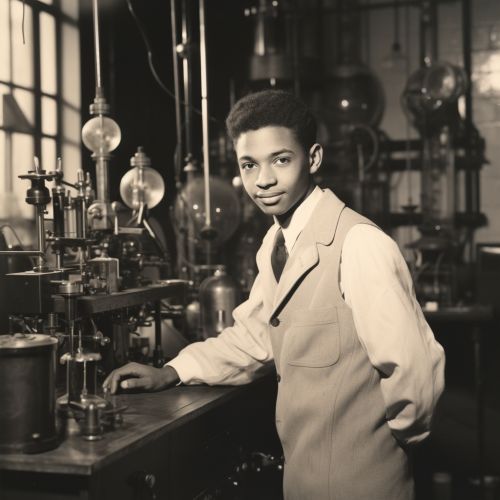
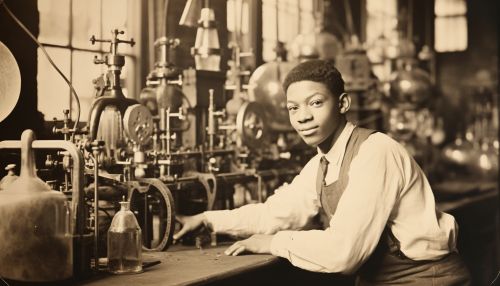
Calvin continued his studies at the University of Minnesota, earning his Ph.D. in Chemistry in 1935. His doctoral thesis, under the supervision of Professor Michael J. Kamlet, was on electron diffraction. After receiving his doctorate, Calvin spent a year in Manchester, England, working with Michael Polanyi, a renowned chemist and philosopher, on another electron diffraction project.[1]
Career and Research
In 1937, Calvin joined the faculty of the University of California, Berkeley, where he would spend the rest of his career. His early work at Berkeley involved the use of radioactive isotopes to trace the path of carbon in photosynthesis. This research led to the discovery of the Calvin Cycle, a series of biochemical reactions that take place in the chloroplasts of green plants during photosynthesis.[1]
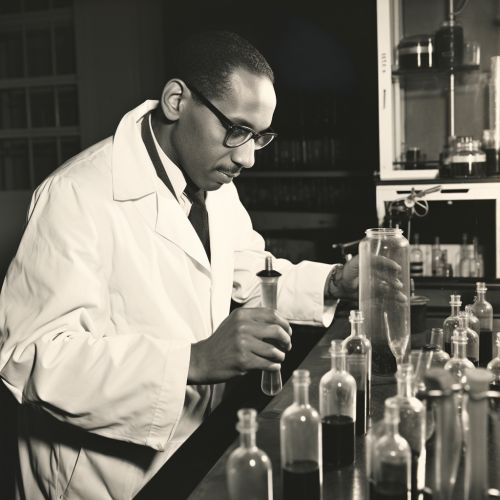
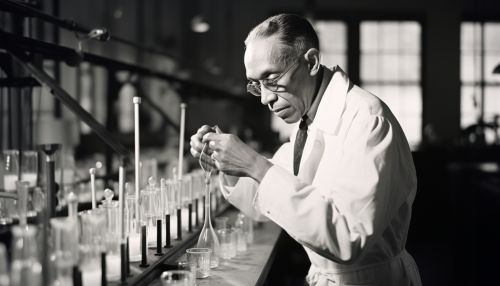
Calvin's research on photosynthesis extended over several decades and involved numerous collaborators. His team used the radioactive isotope carbon-14 to trace the path of carbon through the process of photosynthesis, from the absorption of carbon dioxide by the plant to the production of glucose. This research resulted in the elucidation of the complete path of carbon in photosynthesis, known as the Calvin Cycle or the Calvin-Benson Cycle.[1]
In addition to his work on photosynthesis, Calvin conducted research in a variety of other areas. He studied the chemical origins of life, investigating how simple organic molecules could have combined to form more complex molecules necessary for life. He also conducted research on oil production and solar energy, exploring the use of plants as a source of renewable energy.[1]
Awards and Honors
Over the course of his career, Calvin received numerous awards and honors for his contributions to science. In 1961, he was awarded the Nobel Prize in Chemistry for his work on the path of carbon in photosynthesis. He was the first scientist to receive this award for research conducted entirely with radioactive isotopes.[1]
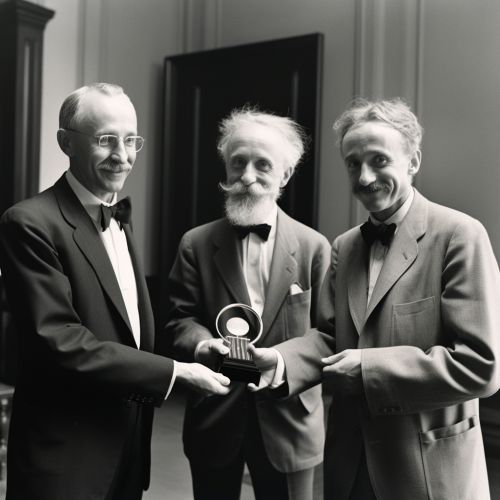
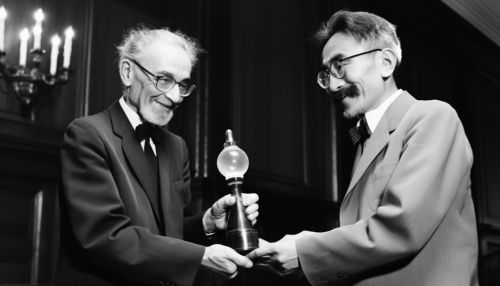
In addition to the Nobel Prize, Calvin received the Priestley Medal, the highest honor awarded by the American Chemical Society, in 1978. He was also awarded the National Medal of Science in 1989. Calvin was a member of numerous scientific societies, including the National Academy of Sciences, the American Academy of Arts and Sciences, and the Royal Society of London.[1]
Personal Life and Legacy
Calvin married Genevieve Jemtegaard in 1942, and they had two daughters and a son. He was known for his dedication to his work, often spending long hours in the laboratory. Despite his demanding work schedule, he found time to enjoy music and was an accomplished violinist.[1]


Calvin passed away on January 8, 1997, in Berkeley, California. His pioneering work on the path of carbon in photosynthesis has had a lasting impact on the field of plant biology. His research has also had implications for our understanding of global carbon cycling and climate change. Today, the Calvin Cycle is a fundamental concept taught in biology classes around the world.[1]
See Also
- Photosynthesis
- Calvin Cycle
- Nobel Prize in Chemistry
- University of California, Berkeley
- Michael Polanyi
